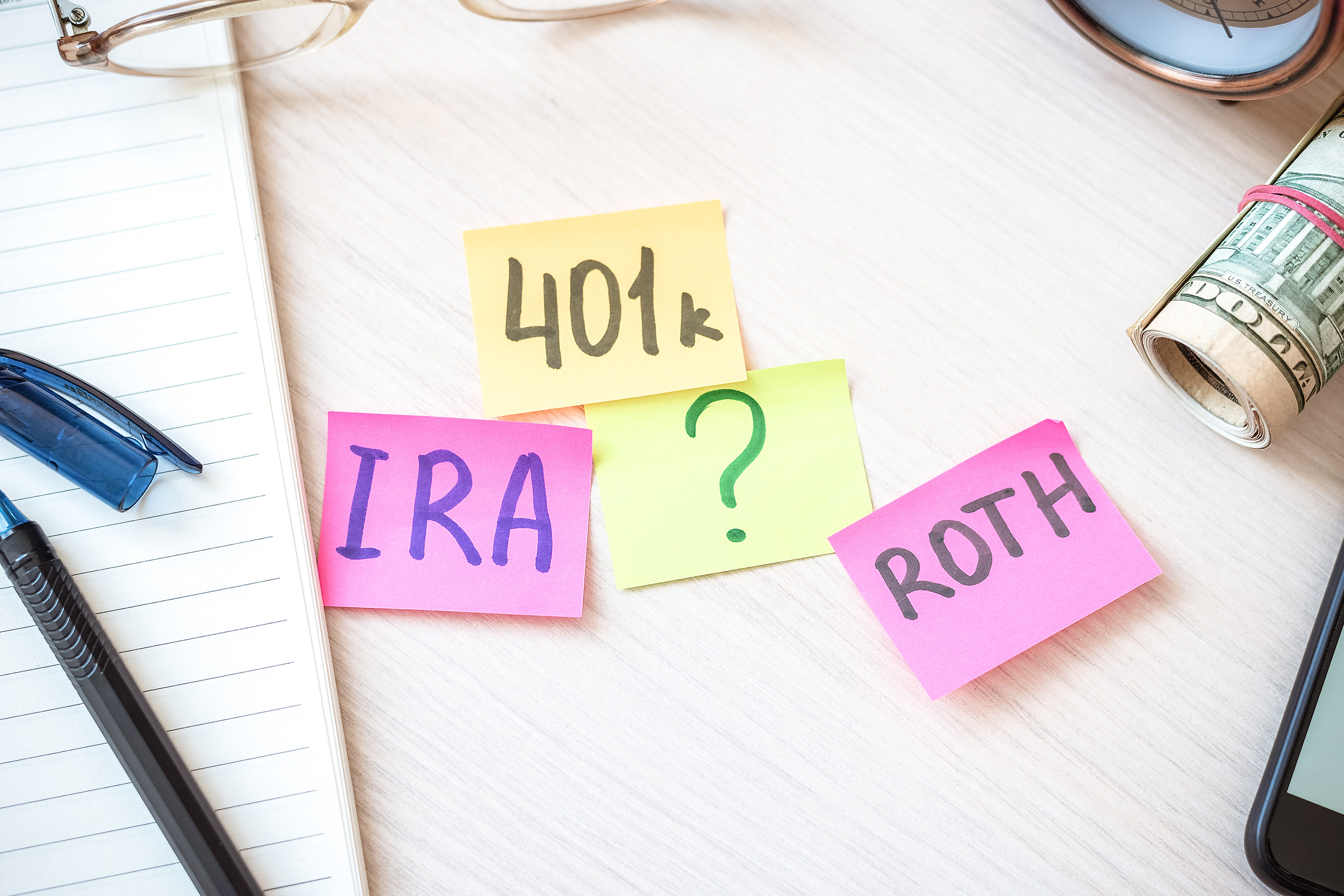What’s a 401(k)?
A 401(k) is a type of employer-sponsored retirement account. It has an annual contribution cap of up to $22,500 (or $30,000 for people 50 and older). Many employers who offer retirement benefits offer a 401(k) match, where they’ll put in as much as you do up to a certain amount. Your earnings are tax advantaged when you contribute to your 401(k), so any amount you put in reduces your taxable income now.

Who should have a 401(k)?
If your employer offers a 401(k) match, it’s a smart money move to max out their contribution each year. You don’t want to leave that money on the table. After all, that’s why they call them employee benefits. But if you don’t have a job that offers this type of benefit, you can still save for retirement. And even if you do, you might also want to consider having an IRA.
What’s an IRA?
IRA is an individual retirement account, meaning an individual can open one independently. Many banks and credit unions, including RMCU, offer them. You don’t need a job that has retirement benefits to take advantage of the tax savings of an IRA. And even if your employer offers a retirement plan, you can still save with your own IRA. There are a few different types, with Roth, SEP, ESA, or Traditional IRAs available. Each has its own benefits, including different types of tax advantages. They also have maximum annual contribution limits, usually $6,000 per year ($7,000 if you’re over 50).

Who should have an IRA?
Anyone earning a taxable income can contribute to a Roth or traditional IRA. The key is that you can’t contribute more than your taxable income that year. SEP IRAs do require account holders to be at least 21. But that means you don’t have to wait for an employer to help you save for retirement. You can get started with your first high school job if you want. The earlier you start saving, the sooner compound interest and market growth over time can help your balance steadily climb.
Even if you do receive retirement benefits from an employer in the form of a 401(k), pension, or similar account, you can still use an IRA to your financial advantage. Once you’ve hit your employer match on your 401(k), you often have lower account management fees with an IRA. So by saving extra there, you can keep more of your dollars for retirement.
As an RMCU member, it’s easy to open an account online. And if you’re not a member, you can also apply from the comfort of your computer or go to your nearest branch. Sign up, and start saving.



